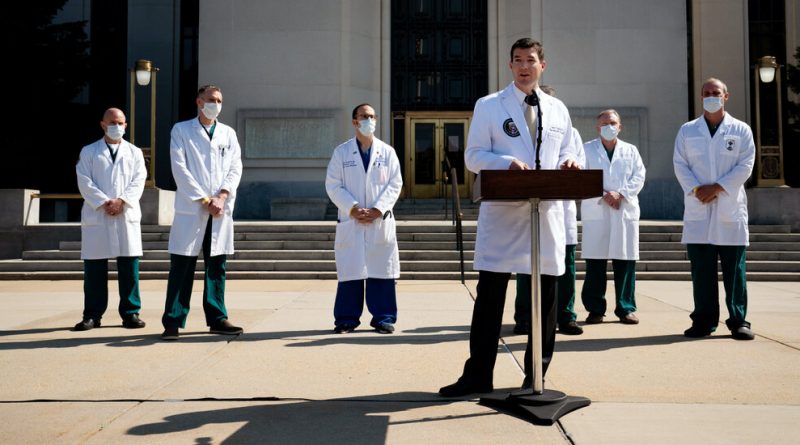Instead of Reassurance, Trump’s Doctor Delivers Confusion, Experts Say
[ad_1]
This is not Dr. Conley’s first brush with controversy. In May, after the president announced that he was taking hydroxychloroquine, an anti-malaria drug that Mr. Trump was promoting without evidence as a way to prevent coronavirus infection, Dr. Conley released a letter in which he said he had “concluded the potential benefit from treatment outweighed the relative risks.”
He later said the president had completed the treatment “safely and without side effects.”
And in November, Dr. Conley found himself in the awkward position of explaining a highly unusual unannounced visit the president made to Walter Reed. Without disclosing details, he denied speculation that the president had chest pain or some other acute problem, adding that Mr. Trump “did not undergo any specialized cardiac or neurologic evaluations.”
Dr. Conley, a Pennsylvania native who received his medical degree from the Philadelphia College of Osteopathic Medicine in 2006, is a decorated Navy commander who served in Afghanistan. He was named the acting White House physician in March 2018 after Dr. Ronny L. Jackson was nominated to be the secretary of the veterans affairs. (Dr. Jackson, who withdrew from consideration amid allegations of inappropriate workplace behavior, is now running for a House seat in Texas.)
In May 2018, Mr. Trump appointed him to be the White House physician, a position created by Congress in 1928, although the White House has employed doctors at least since the late 1800s. The job involves caring for the president, the vice president and their families, and supervising the White House medical unit — a group of health professionals who travel with the president and are on duty at all times to provide for his care.
It is ordinarily a low-profile job. One exception was in 1981, when President Ronald Reagan was shot and taken to George Washington University Hospital. Dr. Daniel Ruge, the White House physician at the time, drew praise for insisting that Mr. Reagan be treated by the hospital’s trauma team, rather than taking charge himself.
On Sunday, Dr. Conley obfuscated. When asked about the president’s X-rays and lung function, he said the tests showed “some expected findings, but nothing of any major clinical concern.”
It was not a lie, experts said, but it was not exactly truthful either, especially given that the doctor said Mr. Trump was taking dexamethasone, a steroid that can have harmful effects on the immune system and is recommended only for coronavirus patients who are seriously ill.
[ad_2]
Source link
